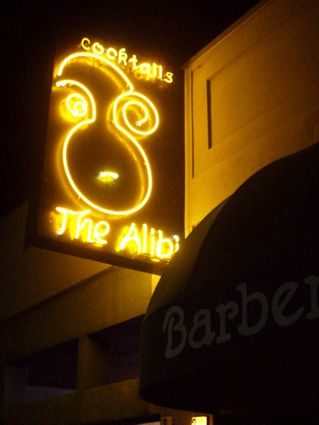With the tenth anniversary of the attacks of September 11, 2001, coming up, it made sense that the exercise for our monthly writing group at church would be on some related topic. But of course not everyone was affected by the September 11 attacks in the same way, and for some people other events had a bigger impact on their lives than did the September 11th attacks. So the writing exercise for the month was to write something about the day that changed the world — as in, the day that changed the world for you, the day that changed your world.
To start us off, I read a passage about Pearl Harbor day from Desert Exile: The Uprooting of a Japanese American Family by Yoshiko Uchida (Seattle: University of Washington, 1982, 2000):
It was one of those rare Sunday when we had no guests for dinner. My parents, sister, and I had just come home from church and were having a quiet lunch when we heard a frenzied voice on the radio break in on the program. The Japanese had attacked Pearl harbor.
“Oh no,” Mama cried out. “It can’t be true.”
“Of course not,” Papa reassured her. “And if it is, it’s only the work of a fanatic.”
We all agreed with him. Of course it could only be an aberrant act of some crazy irresponsible fool. It never for a moment occurred to any of us that this meant war. As a matter of fact I was more concerned with my approaching finals at the university [of California at Berkeley] than I was with this bizarre news and went to the library to study. When I got there, I found clusters of Nisei students anxiously discussing the shocking event. But we all agreed it was only a freak incident and turned our attention to our books. I stayed at the library until 5:00 p.m. giving no further thought to the attack on Pearl Harbor.
When I got home, the house was filled with an uneasy quiet. A strange man sat in our living room and my father was gone. The FBI had come to pick him up, as they had dozens of other Japanese men. Executives of Japanese business firms, shipping lines, and banks, men active in local Japanese associations, teachers of Japanese language schools, virtually every leader of the Japanese American community along the West Coast had been seized almost immediately.
Actually the FBI had come to our house twice, once in the absence of my parents and sister who, still not realizing the serious nature of the attack, had gone out to visit friends. Their absence, I suppose, had been cause for suspicion and the FBI or police had broken in to search our house without a warrant. On returning, my father, believing that we had been burglarized, immediately called the police. Two policemen appeared promptly with three FBI men and suggested that my father check to see if his valuables were missing. They were, of course, undisturbed, but their location was thereby revealed. Two of the FBI men requested that my father accompany them “for a short while” to be questioned, and my father went willingly. The other FBI man remained with my mother and sister to intercept all phone calls and to inform anyone who called that they were indisposed.
One policeman stationed himself at the front door and the other at the rear. When two of our white friends came to see how we were, they were not permitted to enter or speak to my mother and sister, who, for all practical purposes, were prisoners in our home.
By the time I came home, only one FBI man remained but I was alarmed at the startling turn of events during my absence. In spite of her own anxiety, Mama in her usual thoughtful way was serving tea to the FBI agent. He tried to be friendly and courteous, reassuring me that my father would return safely in due time. But I couldn’t share my mother’s gracious attitude toward him. Papa was gone, and his abrupt custody into the hands of the FBI seemed an ominous portent of worse things to come I had no inclination to have tea with one of its agents, and went abruptly to my room, slamming the door shut. [pp. 46-47]
Then each of us talked about the day that changed our worlds. I and one or two others spoke about our experiences on September 11, 2001; someone else spoke about Pearl Harbor Day; another about the Kennedy assassination; still another about a personal experience that was life-changing, even life-shattering. For each of us, it was the intersection of an exterior and catastrophic event, combined with a life-altering personal experience, that led to a “day the changed the world.” And then we spent an hour writing about our “day that changed the world.”
The varied experiences of our writing group made me curious about how other people define the “day that changed the world. So here’s a question for you, the reader of this blog: What was your “day that changed the world”? Was it 9/11, or Pearl Harbor Day, or JFK’s assassination, or MLK’s assassination — or something else? What happened on that day — both the world events, and your own personal events?


